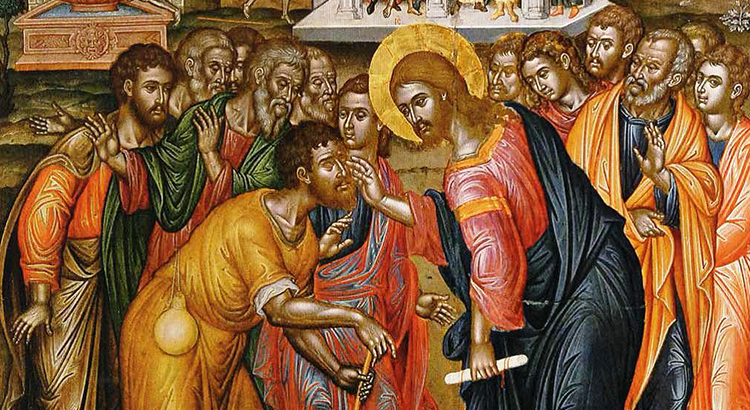Prayer for the sick
Feast of the Apostles Phillip and James.
The prayer for the sick is held in the Basilica of Santa Maria in Trastevere.
Reading of the Word of God
Alleluia, alleluia, alleluia
This is the Gospel of the poor,
liberation for the imprisoned,
sight for the blind,
freedom for the oppressed.
Alleluia, alleluia, alleluia
John 14,6-14
Jesus said: I am the Way; I am Truth and Life. No one can come to the Father except through me. If you know me, you will know my Father too. From this moment you know him and have seen him. Philip said, 'Lord, show us the Father and then we shall be satisfied.' Jesus said to him, 'Have I been with you all this time, Philip, and you still do not know me? 'Anyone who has seen me has seen the Father, so how can you say, "Show us the Father"? Do you not believe that I am in the Father and the Father is in me? What I say to you I do not speak of my own accord: it is the Father, living in me, who is doing his works. You must believe me when I say that I am in the Father and the Father is in me; or at least believe it on the evidence of these works. In all truth I tell you, whoever believes in me will perform the same works as I do myself, and will perform even greater works, because I am going to the Father. Whatever you ask in my name I will do, so that the Father may be glorified in the Son. If you ask me anything in my name, I will do it.
Alleluia, alleluia, alleluia
The Son of Man came to serve,
whoever wants to be great
should become servant of all.
Alleluia, alleluia, alleluia
"Have I been with you all this time, Philip, and you still do not know me? Whoever has seen me has seen the Father." Brothers and sisters, we listen to this question of Jesus in this evening prayer in which we remember the apostles Philip and James with the entire Church. Tradition remembers James as the son of Alphaeus, the one who at the beginning of the apostles' mission did not want the rules of observance of the law and Jewish tradition to be imposed on converts from paganism; Philip is remembered in the Gospel of John as the one who asks questions to the Lord: his own limit before the crowds to feed, and then the question of the Greeks who want to see Jesus, and finally this profound question of being able to see the Father. Like for all the apostles also Philip's and James' memory impels us to look beyond ourselves, and look at the world through Jesus' eyes. One can be with Jesus for a long time, follow him, listen to him, but not yet have known him. And it is here then that Philip's question meets with our life. The question of knowing Jesus, the question of every disciple who must become an apostle, that is one sent to make the Gospel known to others, to communicate the word of the Lord to the world. And in the end one can follow Jesus constantly looking at one's own limit, at the sense of impossibility while remaining attached to one's own tradition and habits. The problem of "knowing" is often confused with the idea of understanding; but here is one of Philip's limits as he does not understand that knowing means welcoming in the heart, loving, living with Jesus. Those who see Jesus then see the Father, that is become able to recognize the signs of a greater love. Philip asks: "Lord, show us the Father, and we will be satisfied." Jesus answers rebuking him: "Have I been with you all this time, Philip, and you still do not know me? Whoever has seen me has seen the Father." John in his first letter writes: "No one has ever seen God." The apostles, with their questions, guide us to seek more deeply God's face through Jesus, and with him to recognize that God is present in each person.
